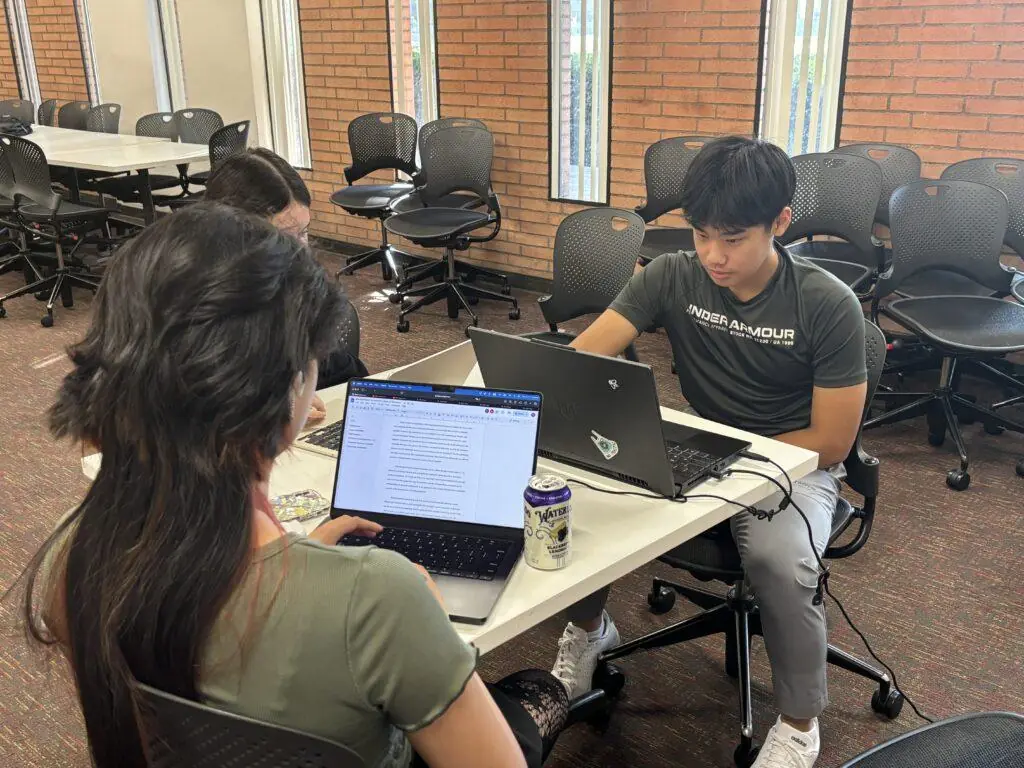College isn’t easy for anyone. After all, everything is new and different, from the environment to the people to what you’re learning. But for first-generation college students, there are often unique hurdles to navigate, starting with the application process and continuing throughout the final year. Despite these challenges, it’s also a major achievement and a chance to break new ground as the first person in your family to attend college.
But how do you ensure you thrive throughout your school experience? Consider these tips to help you succeed as a first-generation college student.
What Is a First-Generation College Student?
Not every person defines a first-generation college student the same way. In general, though, this term refers to a student whose parents didn’t attend a four-year university.
However, Dan Phan, academic program manager for USC Bovard Scholars, noted there can be “gray-area situations,” encompassing people whose parents graduated from a university outside the United States — where the education process and financial aid can be quite different — or received a two-year terminal degree instead of a four-year one. Additionally, some people don’t consider a student first-generation if they had an older sibling who received a degree.
Regardless of the “true definition,” the concept remains the same: A first-generation college student lacks the direct guidance and resources others might have throughout the university experience. Despite these setbacks, being a first-generation college student is something to be proud of — and an opportunity to be a trailblazer.
What Challenges Do First-Generation College Students Face?
Being a first-generation college student isn’t always easy, especially when it comes to applying for university in the first place.
“Instead of asking a parent or family member how to find, apply to and prepare for college, first-generation college students have to navigate all of that on their own and use the resources at their high school,” Phan said. “It’s hard to know what resources and information exist if no one in the family has gone to college before, so everything is new territory for the first-generation college student.”
And, once you’re actually at school, these issues can persist. Some first-generation students struggle with imposter syndrome, feeling as if they don’t “belong” as much as other students. At times, they may feel disconnected from their peers. Plus, each year of college brings new considerations — where to live, which classes to take, whether to study abroad, how to find financial aid opportunities — where a student may wish they had a knowledgeable adult to consult with.
What Are the Benefits of Being the First in Your Family to Attend College?
But it’s important to keep in mind that being a first-generation college student also means you have specific strengths that your peers may not have.
For example, by doing your own research for the application process, you’re teaching yourself to be more independent and resilient — plus those research skills will come in handy once you actually start school! Similarly, entering a new environment without parental guidance may be scary, but it reflects your own strength.
Being the first person in your family to attend college symbolizes much more than just getting a degree, Phan said.
“The benefit of being a first-generation college student is being the first to pave the way, creating ripple effects that impact not only the students, but their families and communities,” Phan said. “There’s something to be proud of in being the first to break barriers and step into new opportunities.”
What Should First-Generation Students Consider When Applying to College?
Since first-generation college students don’t have a parent to walk them through the application process, they should turn to adults who can help them figure out everything from scholarships to admissions essays. For this, Phan recommends scheduling regular meetings with your high school counselor.
“High school counselors can share information about college requirements, specialized programs and scholarships and can support students with devising a college list, completing college applications and essays, and even applying for financial aid,” Phan said.
You should also start contacting admissions officers at the universities you’re interested in, so you can get answers to any questions you may have about their schools. “It’s easy to miss out on opportunities and resources,” Phan said — admissions officers’ job is to steer you in the right direction.
The cost of attending college can also be a major shock, especially if no one in your family is familiar with the financial aid process. That’s why it’s helpful to speak with your counselor about options to make university more affordable. Most importantly, students should fill out the FAFSA and CSS Profile to be considered for need-based grants and merit scholarships, Phan said.
“Some selective colleges have affordability initiatives in place and will meet 100% of demonstrated financial need,” Phan said. “At USC, U.S. families with an annual income of $80,000 or less and typical assets can attend USC tuition-free.”
In addition, there are scholarship funds that are specifically set aside for first-generation college students — you just have to know where to look. Phan listed Questbridge, Gates Scholarship, Coca-Cola and the Jack Kent Cooke College Scholarship Program, for example.
“On scholarship search engines like Cappex (Appily), Niche, Bold, Fastweb and Scholarships.com, students can filter by category and select first-gen-specific scholarships,” Phan suggested.
Once you’re enrolled, your school may also have a scholarship opportunity specifically for first-generation students. USC, for example, has the USC First-Generation Scholarship, which is intended for students with unpaid, career-oriented internships.
When it comes to the application process, Phan said, students should absolutely share their first-generation status. Not only may it lead to application fee waivers and scholarships, but it can also lead to college programming specifically for first-generation students — think mentorship programs, support centers, workshops and more to make your transition easier.
“A few examples include USC’s First Generation Plus Success Center FG+SC, Yale’s First Generation Low Income (FGLI) Thrive program and Princeton’s Emma Bloomberg Center for Access and Opportunity,” Phan said.
How Can First-Generation College Students Succeed at University?
Once you start college, you may still encounter some issues, but there are ways to make your university experience easier. For starters, if you didn’t learn about the university’s programs for first-generation students during the application period, do your research and see what’s available! Workshops, mentors and student organizations can provide you with a network and give you the information you need to succeed. For example, USC’s First Generation Plus Success Center provides first-generation Trojans with resources and opportunities.
You don’t just have to make your connections through a campus-run organization, though. There are many other first-generation college students on campus: you are not alone. Making friends with students in a similar boat can ease any feelings of imposter syndrome as you navigate college. You can also be a support for one another and share resources.
In addition to workshops specifically for first-generation college students, you should also consider any financial literacy workshops your college offers. This can help you figure out any of the complicated money aspects of university life like budgeting, financial aid opportunities, work-study programs, internships and student loans.
But the most important thing to do? Taking the time to celebrate your achievements. Getting a higher education is a massive accomplishment, especially for students navigating additional hurdles and paving the way for their families. Make sure you pause to acknowledge this win — and all the benefits you’re set to reap! You deserve it.
Learn more about USC Pre-College Programs today.

